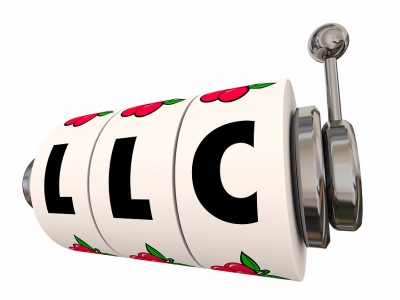
Comments & Feedback From Pro Intermediaries & Pro Advisors On BizBen:

 This is an excellent summary of the many factors to be considered in deciding what type of entity to use to purchase a business, which usually comes down to deciding between a "sub-S" corporation or a limited liability company ("LLC").
This is an excellent summary of the many factors to be considered in deciding what type of entity to use to purchase a business, which usually comes down to deciding between a "sub-S" corporation or a limited liability company ("LLC").

Cheryl's a restaurant business broker, over 25 years in the bar and restaurant industry coupled with a J.D. Cheryl works tirelessly to create successful strategies and effective negotiations for those who wish to purchase a new or sell an existing bar, restaurant, cafe, or night club. 415-309-2722
ServingCity Of San Francisco
McGovern Escrow Services, Inc., is a leading independent escrow company. We are a trusted partner with our clients, assisting them through the tangled bulk sale & liquor license transfer process. We provide attentive, quality & innovative customer service. Phone Elizabeth McGovern at 415-735-3645.
ServingSan Francisco Bay Area, North Bay, Central Valley
If your business involves alcoholic beverage sales, we can help. Obtaining a liquor license transfer or selling a business with a license in California does not have to be a frustrating and overwhelming process. We have procured thousands of licenses for our clients.
ServingAll Of California
I am an experienced entrepreneur, attorney, & business professor. I & my EvergreenGold® team offer business owners sound advice & expertise to build business value & achieve profitable sales. Call me today for a business evaluation & SWOT analysis for your business anywhere in the USA.
ServingNationwide
I am the Founder Of BizBen.com. I consult daily with intermediaries, business buyers, owner/sellers & advisors daily about buying and selling California small to mid-sized businesses. Contact me today about joining & utilizing BizBen, consultations, & advisory services.
ServingNationwide - All Areas
Laundry consulting, due diligence, buyer representation: We preview laundries for you and evaluate them. 28 years laundry industry experience: buying, selling, valuing, retooling, analyzing, consulting services for laundry buyers and entrepreneurs in California. Contact us today about our services.
ServingSouthern California
For over 25 years Peter Siegel, MBA has been providing niche business purchase financial advisory and loan placement services with SBA Loans, Non SBA Financing, Retirement Plan Conversions, Note Restructures, etc. Call me regarding business purchase financing and to get pre-qualified: 925-785-3118.
ServingNationwide - All Areas
The Veld Group provides a refreshing approach to Business Brokerage, Mergers & Acquisitions and Business Consulting and Valuations. From Your Street to Wall Street, we cater to Main Street Businesses as well as more complex Strategic Firms and Start-Ups.
ServingSouthern California

Laundromats and coin operated Laundromats are popular choices among business buyers as they often can be successfully run as an absentee run business. You need to be strategic about when you sell your Laundromat so you don't get taken to the cleaners by a buyer and so that you maximize your profits.

Buying a professional service business, like a dental practice, is one of the most profitable ventures you can enter into if you are considering becoming a small business owner. In this blog, Peter Siegel, MBA discusses six things you need to know about buying a successful dental practice or office.

Chuck Post a laundry consultant, specialty broker, buyer representative & due diligence advisor starts this discussion on why it's important to have an exit strategy in mind while buying a laundromat! He & others explain why this concept is so important for buyers especially in the laundry business.

Buying a liquor store can present some major challenges to business buyers - a recent client on the BizBen ProBuy Program relates to Peter Siegel, MBA what the major challenges may be when searching for and buying a Californa liquor store business. I welcome other Advisors to weigh in on this topic.

Sometimes business brokers just can't win with their clients, because if an offer comes in too fast & too early then they must have lowballed the price & the seller is suspicious, and if not enough offers come in after putting the business on the market - they may look unproductive to their clients.

